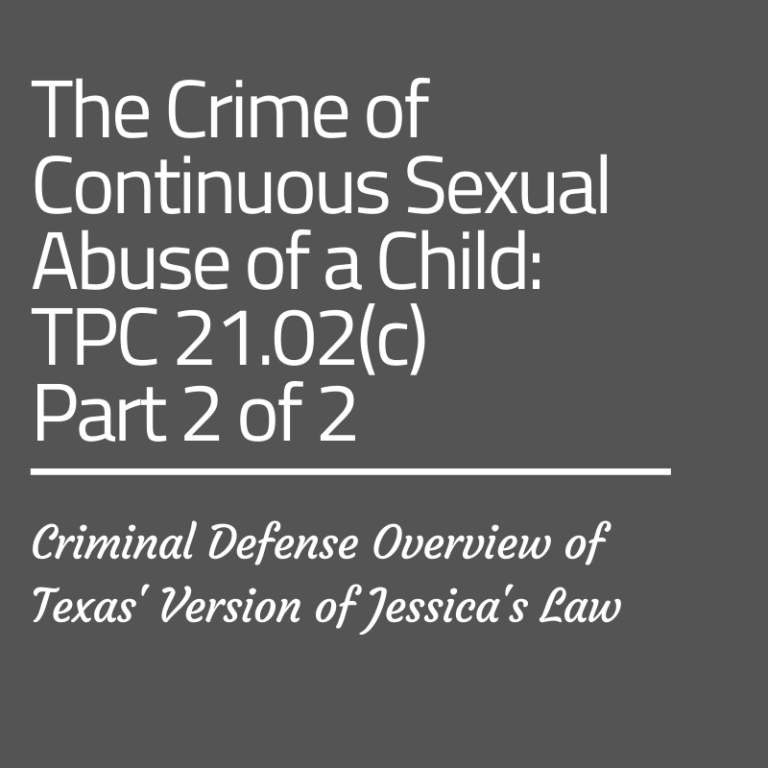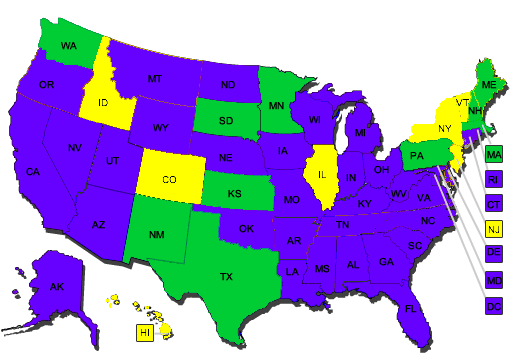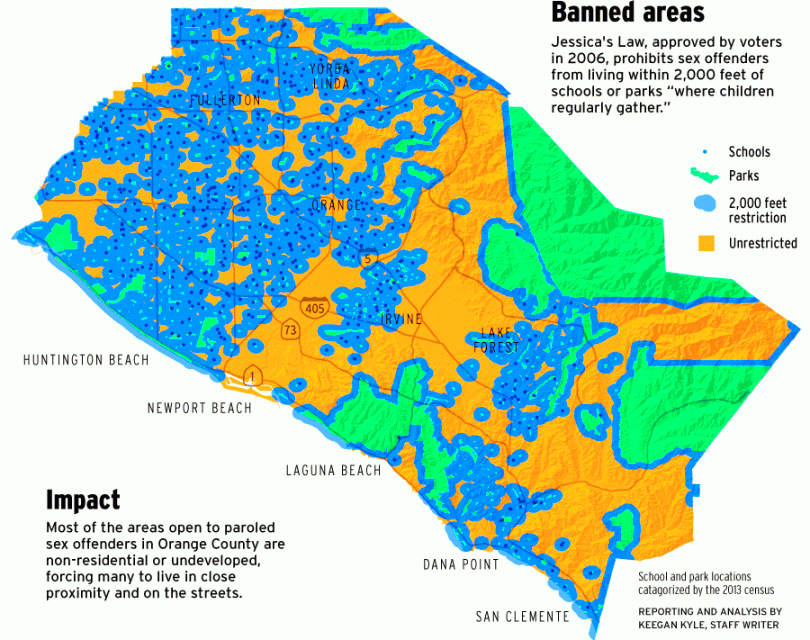The Impact of Jessica’s Law on Sexual Offender Registration
Jessica’s Law is a significant piece of legislation aimed at enhancing public safety by addressing the issue of sexual offenses. Named after Jessica Lunsford, a young girl who was tragically kidnapped and murdered by a convicted sex offender, this law was enacted to prevent similar tragedies. Its primary goal is to strengthen sexual offender registration and community notification systems, ensuring that communities are better informed about potential dangers.
Key Provisions of Jessica’s Law

Jessica’s Law includes several key provisions designed to protect children and vulnerable populations from sexual offenders. Here are some of the most notable aspects:
- Stricter Registration Requirements: Sexual offenders are required to register with law enforcement agencies and provide detailed personal information, including addresses, employment, and any changes in status.
- Increased Registration Duration: Offenders classified as predators must register for life, while others may have extended registration periods based on the severity of their offenses.
- Community Notification: Law enforcement must notify the public about registered offenders in their area, providing information about the offender’s background and risk level.
- GPS Tracking: High-risk offenders may be monitored through GPS tracking systems to ensure compliance with registration requirements and to enhance public safety.
These provisions aim to create a safer environment for communities by ensuring that sexual offenders are closely monitored and that the public is aware of potential threats.
Changes to Sexual Offender Registration

Jessica’s Law brought about significant changes to how sexual offender registration is managed across various states. These changes have had a profound impact on both offenders and the communities they live in. Here are some of the key changes:
- Standardized Registration Processes: The law has encouraged states to adopt standardized processes for registering sexual offenders, making it easier for law enforcement agencies to track compliance.
- Enhanced Information Sharing: Increased collaboration between states has led to improved information sharing regarding offenders, reducing the chances of offenders slipping through the cracks.
- Public Access to Information: Most states have made online databases available, allowing the public to access information about registered offenders, which fosters greater awareness and vigilance.
- Risk Assessment Tools: Many states have implemented risk assessment tools to better classify offenders based on their likelihood of reoffending, which helps in determining the level of community notification required.
These changes aim to create a more robust and effective system for monitoring sexual offenders, ultimately enhancing community safety and public awareness.
Impact on Law Enforcement Agencies

The implementation of Jessica’s Law has significantly impacted law enforcement agencies across the country. With the responsibility of monitoring sexual offenders heightened, law enforcement faces both challenges and opportunities. Here are some key points regarding this impact:
- Increased Workload: Police departments have seen an uptick in their workload due to the more stringent registration and monitoring requirements. Officers are tasked with ensuring compliance, which can stretch resources thin.
- Training and Resources: Agencies must invest in training their officers to navigate the complexities of the new law. This includes understanding the nuances of the registration process and how to use new tracking technologies effectively.
- Collaboration with Other Agencies: Law enforcement agencies are now collaborating more closely with state and federal entities to share information about sexual offenders. This cooperation is vital for tracking offenders who may cross state lines.
- Public Safety Campaigns: To inform the community about sexual offenders, law enforcement agencies have launched public safety campaigns. These campaigns educate citizens on recognizing offenders and understanding the law’s provisions.
Overall, while Jessica’s Law places additional burdens on law enforcement, it also equips them with better tools and frameworks to enhance public safety.
Effects on Victims and Communities
Jessica’s Law has had a profound impact on victims of sexual offenses and their communities. Its goal is to create a safer environment, but the effects are varied and complex. Here are some notable impacts:
- Increased Awareness: Communities are now more aware of sexual offenders living nearby. This heightened awareness can empower individuals to take precautions to protect themselves and their children.
- Support for Victims: Victims of sexual offenses may find solace in knowing that the law aims to prevent future crimes. Many organizations have emerged to support victims and provide resources for recovery.
- Community Involvement: Local communities are more involved in monitoring and reporting suspicious behavior, fostering a sense of vigilance and collective responsibility.
- Stigmatization of Offenders: While the law aims to protect the public, it can also lead to stigmatization of offenders who have served their time. This stigma can hinder their reintegration into society, making it harder for them to find jobs and support.
In summary, while Jessica’s Law aims to enhance safety, its effects on victims and communities are multifaceted, requiring ongoing dialogue and understanding.
Criticism and Controversies Surrounding the Law
Despite its intentions, Jessica’s Law has faced criticism and sparked controversies. Some argue that while the law is designed to protect communities, it may inadvertently create new problems. Here are some critical points of contention:
- Overreach and Harsh Penalties: Critics argue that the law’s strict requirements can be overly harsh, especially for offenders who have rehabilitated. The lifetime registration for certain offenders is seen by some as disproportionate.
- Effectiveness in Reducing Crime: Some studies suggest that the law does not significantly reduce recidivism rates among sexual offenders. Critics question whether the law’s measures are the most effective approach to preventing future offenses.
- Impact on Families: The law can have detrimental effects on the families of offenders, often leading to social isolation and economic hardship. Families may face backlash from communities, which can further complicate their situation.
- Resource Allocation: Law enforcement agencies often struggle with resource allocation, as the increased focus on monitoring offenders can divert attention from other pressing community safety issues.
In conclusion, while Jessica’s Law aims to protect vulnerable populations, it also raises important questions about fairness, effectiveness, and the potential consequences for communities and offenders alike.
Recent Developments and Amendments
Since the enactment of Jessica’s Law, there have been several important developments and amendments aimed at refining its provisions and addressing ongoing concerns. These changes reflect the evolving understanding of sexual offenses and the needs of communities. Here are some notable recent developments:
- State-Specific Amendments: Different states have introduced amendments to tailor the law to their unique situations. For instance, some states have adjusted registration periods based on the offender’s risk level, allowing for a more individualized approach.
- Enhanced Rehabilitation Programs: There is a growing focus on rehabilitation for offenders. Many states are implementing programs that offer counseling and education to help reduce recidivism, acknowledging that not all offenders pose the same risk.
- Technology Integration: Advances in technology have led to the integration of more sophisticated tracking systems, such as improved GPS monitoring. These tools help law enforcement agencies keep better tabs on high-risk offenders.
- Public Engagement Initiatives: Communities are being encouraged to participate more actively in safety measures. Some areas have begun hosting informational sessions to educate citizens about the law and how they can contribute to local safety efforts.
These developments show that while Jessica’s Law has laid a strong foundation for public safety, there is an ongoing effort to refine and improve its effectiveness in protecting communities.
Frequently Asked Questions
Understanding Jessica’s Law can raise many questions. Here are some frequently asked questions and their answers:
- What is Jessica’s Law? Jessica’s Law is legislation aimed at enhancing the registration and monitoring of sexual offenders to improve public safety.
- Who is affected by this law? Sexual offenders, their families, and the communities where they reside are all affected by Jessica’s Law.
- How does the law improve public safety? The law strengthens registration requirements, enforces community notification, and allows for GPS tracking of high-risk offenders.
- Are there any criticisms of Jessica’s Law? Yes, some critics argue it can lead to harsh penalties, stigmatization, and may not effectively reduce recidivism rates.
- What are the recent changes to the law? Recent amendments have included state-specific adjustments, enhanced rehabilitation programs, and improved tracking technologies.
If you have more questions about Jessica’s Law, it’s essential to consult local law enforcement or legal professionals who can provide tailored information.
Conclusion on the Impact of Jessica’s Law
In conclusion, Jessica’s Law has made significant strides in enhancing community safety by improving the registration and monitoring of sexual offenders. While the law aims to protect vulnerable populations, its implementation has brought both benefits and challenges.
On one hand, increased public awareness and stringent monitoring practices have empowered communities to be more vigilant. On the other hand, the law has faced criticism for its potential to stigmatize offenders and place undue burdens on law enforcement agencies.
As we move forward, it’s crucial to continue evaluating the effectiveness of Jessica’s Law and consider amendments that address its shortcomings. Balancing public safety with fairness and rehabilitation remains a vital conversation that communities, lawmakers, and advocates must engage in. Ultimately, the goal should be to create safer environments while fostering understanding and support for all involved.


